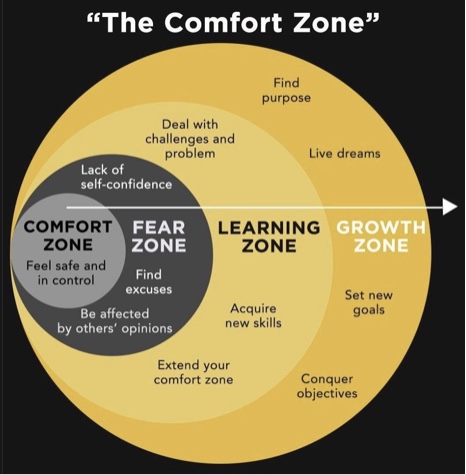
Most of the best things in life happen at the edges of your comfort zone. If you only want to feel comfort, you’ll be less likely to branch out/try new things, to overcome adversity, learn new skill sets, etc.
The higher degree of difficulty, the less comfortable most people are with trying to tackle that problem. If you’re willing (and able) to solve that problem, and if you can find a way to solve the problem for others too, you often are compensated (monetarily) for it. Most people want to stay in their comfort zones and are willing to trade money for comfort (paying someone else to solve their problems). There’s nothing wrong with this. We all do it, and depending on the stage of life we’re in, it may be a smarter financial decision to pay an expert/specialist to do something more efficiently so you’re not wasting your non-renewable resource (time) on something you don’t know how to do well and will end up with a worse finished product than if the expert did it in the first place.


